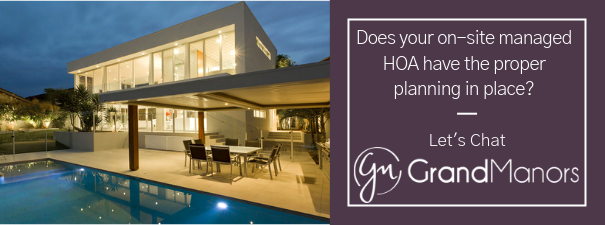We live in a digital age where communication is delivered with lightning speed and the majority of community associations are turning to social media to communicate with homeowners. Social media has been shown to be an effective tool in keeping a community informed of various events and activities. However, it is vital that a social media policy be adopted to ensure that your board avoids negative issues that may arise on your social media platform. Below, you will find guidance for your association counsel on best practices for your social media site.
1. Limiting Content
According to The College of Community Association Lawyers, "Content should be limited, by the association, to matters that benefit the community." Examples for your social networking HOA include general announcements, reminders, event photos, polls to collect opinions about decisions facing the community and other content that your community would find helpful. If the association would like to offer an online "bulletin board" for the community, the association should encourage members to submit information to a designated contact person for the community's social media site. This person will be in charge of receiving, editing if necessary and posting to the site. However, if you want to allow your homeowners to network with each other or create groups, you may need a site administrator that has access to each group and can periodically monitor the content. Sites like Ning allows you to give administration rights to committee chairs.
2. Content That Should Never Be Posted
To help prevent legal problems and promote a sense of community harmony, there are posts that you should avoid publishing. Things such as photos of anyone without their consent specifically children, confidential business relating to the community, private information of a community member, posts directed to a specific person in your community and inflammatory or defamatory remarks. Following these guidelines will help to ensure a peaceful online presence.
3. Staying Compliant
Once your association board creates a social networking HOA policy, have the association's lawyer review the policy to make sure it is compliant and address any other things that should be considered. According to KSN Law, "With the rise of social media use by associations, board members should be cautious and restricted in the information they choose to disseminate via social media. Courts generally find that information posted on an online platform can be utilized in litigation. Board members should expect that communications shared on social media will be available in the event an owner initiates legal action against the association." Lastly, reviewing and updating the policy annually will ensure that it is still relevant to the rapid changes in social media.
4. Handling Negativity
Social media can present a challenge for board members if faced with negative comments from homeowners. It is best practice to include guidelines to de-escalate situations in your policy. If your board has a negative comment posted by a homeowner, address the comment and show the community that the board cares and wants to work with them to ensure their happiness. Leave a reply that you understand the issue and acknowledge their concerns. Then simply tell them that you will message them directly to continue working toward a solution. The main goal is to get them offline and address issues one on one.
As board members, take the time necessary to draft a social media policy that provides guidance and protects against slander, privacy and harassment claims. This can be a fun and engaging tool for your community and an easy way to keep homeowners in the know. Investing some time and effort will promote community compliance and harmony. If you are looking for a luxury HOA/Condo management service, Grand Manors is a distinguished onsite community management service for all types of lifestyle communities. Contact us and let us show you how we provide a custom-tailored approach to on-site management.

